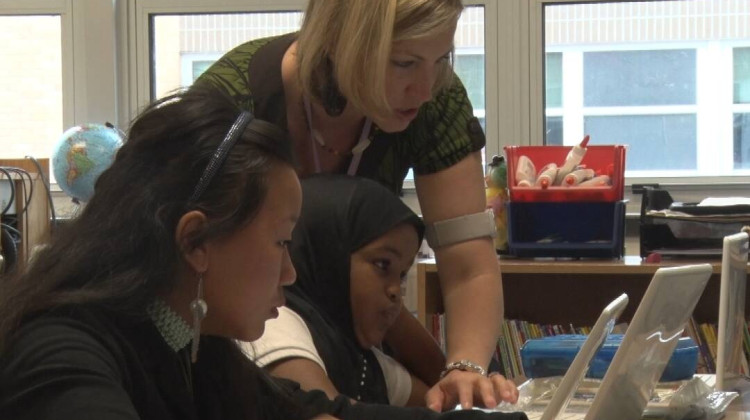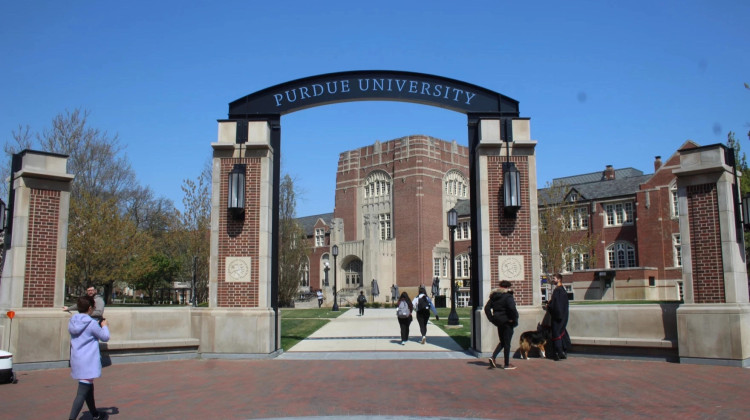National education leaders are saying “enough is enough” when it comes to standardized testing.
President Barack Obama announced Saturday that his administration will work to limit the amount of standardized testing in schools – specifically, the president says no child should spend more than two percent of classroom instruction time taking those tests.
He also called on Congress to “reduce over-testing” as it works to reauthorize No Child Left Behind, the cornerstone federal statute governing all U.S. public elementary and secondary schools.
“I believe that in moderation, smart, strategic tests can help us measure our kids’ progress in school,” Obama said in a video posted to Facebook. “But I also hear from parents who rightly worry about too much testing, and from teachers who feel so much pressure to teach to a test that it takes the joy out of teaching and learning, both for them and for the students. I want to fix that.”
"Learning is about so much more than just filling in the right bubble. So we’re going to work with states, school districts, teachers, and parents to make sure that we’re not obsessing about testing, that the principles I just outlined are reflected in classrooms throughout the country—to make sure that our kids are enjoying learning, that our teachers are able to operate with creativity, to make sure we are preparing our kids for a lifetime of success." —President Obama
Posted by The White House on Saturday, October 24, 2015
The U.S. Department of Education plans to take action on both the federal and state levels to reduce over-testing. The feds will offer expertise and financial support for states to develop and use “less burdensome” assessments, as well as flexibility from federal mandates and greater support to innovate.
The administration will also create or fix rules to reduce the reliance on student test scores, including requirements for teacher preparation programs and educator evaluations.
This is quite a shift in rhetoric from USED, which has pushed to increase accountability linked to student assessment over the past seven or eight years. But this week, current education Secretary Arne Duncan admitted to the New York Times‘ Kate Zernike that he thinks it’s time to tone things down:
“I still have no question that we need to check at least once a year to make sure our kids are on track or identify areas where they need support,” said Arne Duncan, the secretary of education, who has said he will leave office in December. “But I can’t tell you how many conversations I’m in with educators who are understandably stressed and concerned about an overemphasis on testing in some places and how much time testing and test prep are taking from instruction.”
“It’s important that we’re all honest with ourselves,” he continued. “At the federal, state and local level, we have all supported policies that have contributed to the problem in implementation. We can and will work with states, districts and educators to help solve it.”
A study released by the Council of the Great City Schools found that nationwide, students take an average of 8.4 assessments per year in grades 3-5. Researchers say eighth graders spend an average of 25.3 hours during the school year taking exams, and the average pre-K class gives 4.1 standardized tests per year.
Patrick McAlister, Director of Policy for Teach Plus Indianapolis, told Indiana lawmakers earlier this fall that during the 2013-14 school year, third graders in the state’s largest public school district, Indianapolis Public Schools, spend an average of 11.4 hours on state tests and nine hours on district exams.
Testing time has long been a contentious issue among policymakers, teachers, school leaders and parents in Indiana.
Just this past spring, lawmakers had to scramble to fix the ISTEP+ test for this very reason. In response to outcry about the length of the 2015 test, Gov. Mike Pence hired outside consultants to work with legislators to help shorten the test by three hours.
The topic also comes up frequently in conversations about Indiana’s current teacher shortage. Many say they believe people are discouraged from joining the teaching force because of extreme pressure educators face to help students perform well on tests. In Indiana, those scores are linked to school A-F accountability grades, teacher evaluations and, in turn, teacher pay.
Indiana Department of Education spokeswoman Samantha Hart says the IDOE needs to see more details, but that they believe this proposal is a step in the right direction.
“It is well known that Superintendent [Glenda] Ritz has advocated to reduce the amount of time students spend on high-stakes standardized testing,” Hart adds in a statement emailed to StateImpact. “That is why she is continuing to work to fix the problems caused by No Child Left Behind so that there is more time for teaching and learning in our classrooms.”
Hoosier schools currently administer several annual statewide tests, including the ISTEP+, IREAD-3, Accuplacer and End of Course assessments, among others.
 DONATE
DONATE










 Support WFYI. We can't do it without you.
Support WFYI. We can't do it without you.